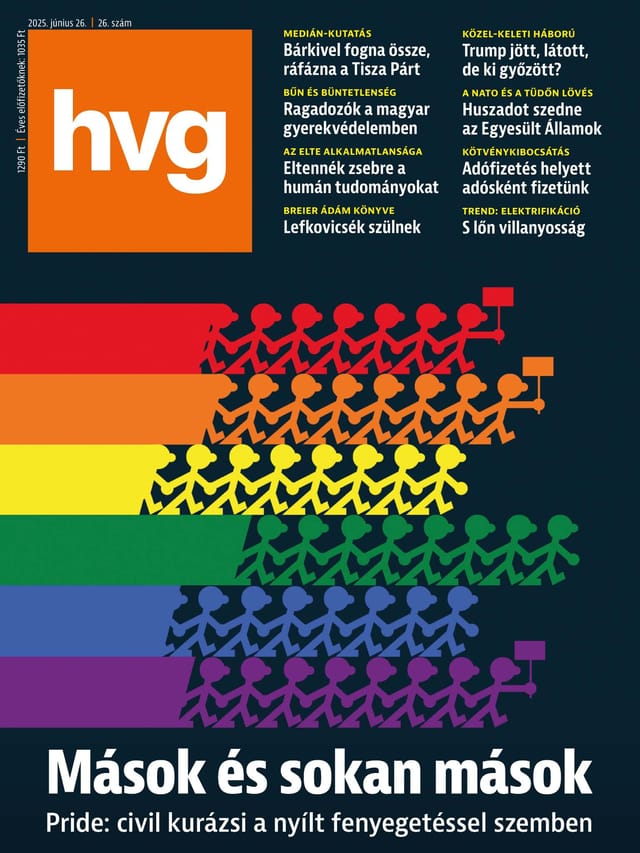hvg.hu: Your fact-finding mission came in a critical phase of Hungary’s
economic development. Real wages are down, government debt surged to record high, unemployment is increasing, and the budget deficit in the first two months reached almost half of the level planned for the whole year. Prominent economists whose ideas are otherwise close to the present government’s philosophy, concluded in a recent study that the country has lost its earlier advantages compared to other new EU members, the old routine of paternalistic management is coming back, and the economy is losing steam, they
Ashoka Mody: This is, indeed, an important moment. We all remember that the Hungarian economy a couple of years ago was a star-performer, thanks to its successful transition to a market economy, the stable legal and social environment, and the favorable investment climate. All these positive changes were strengthened by the EU accession process. However, the economy is now entering a new, crucial phase. Now it is the time – as was confirmed by senior government and central bank officials – that the country should focus again on raising economic growth. Sustainable growth of 3-4 percent or higher will help reduce unemployment, and ease social tensions: if the cake of the national product is bigger, sharing it would be much easier between the various social groups.
hvg.hu: Reform-economists, those who oppose the present size of the public sector, and the active involvement of the state in economic matters, urge radical changes in order to get rid of the heavy tax burden, the extensive use of subsidies, and the crowding out of the private sector in key areas where the government distorts the level playing field.
A.M.: Without doubt, strengthening the fiscal discipline should become a primary goal. Unfortunately, budgetary targets have been missed in recent years, and large twin deficits – that of the budget and of the current account – create vulnerabilities for the Hungarian economy. Slippages on fiscal discipline could endanger not just growth objectives but also the country’s efforts to join the euro-zone by 2010 under the so-called convergence program.
hvg.hu: But 2010 is a long way to go…
A.M.: I don’t think so. It is closer than you think. As you know there must be a 3 year transition period. It means that Hungary must join the ERM2 in 2007 or 2008, that is just two or three years away. Hungary must meet the Maastricht criteria, i.e. push down the budget deficit to 3 percent of its gross domestic product (GDP), cut government debt to the level that is maximum 60 percent of the GDP, lower annual inflation to 3 percent or lower, and keep the forint–euro exchange rate stable. If all these criteria are not met by the time of joining ERM2, the authorities will have to provide evidence that the economy is on the right track, and the objectives will be achieved by the end of the transition period. Timing thus is extremely important. And adopting the euro can be a worthy national goal to unite forces beyond and above party-politics.
hvg.hu: It sounds convincing, but what we see now in the Hungarian political landscape, that every issue -, no matter how important it is from for the whole nation - is deeply politicized and even the most fundamental economic objectives are continuously debated. Next year is election year, so it is a question, how these targets can be achieved by 2007.
A.M.: Maybe public dialogue on these issues could help: notably, discussions with respect to the institutions and policies that could be effective in ensuring the timely adoption of the euro. It could result in more political cohesion and more popular support. In the present circumstances, fiscal consolidation is slowly progressing but there are doubts about its quality and sustainability.
hvg.hu: What do you mean?
A.M.: What I mean is that the Hungarian economy needs more flexibility if it wants to respond to the changing economic conditions. The budget is rather rigid; a great many expenditure items are entitlements, i.e. committed in advance. The government has little maneuvering space. That rigidity is also present in some aspects of the labor market. I also share the view of those who advocate reducing the public sector. International experience indicates that smaller government helps economic growth. In present circumstances, public expenditures should be cut in order to balance the budget, but also to shrink the size of the non-market sector.
hvg.hu: There is an overwhelming public demand for a significant cut in taxes, in order to encourage entrepreneurial activities and foreign investment!
A.M.: In the longer term tax cuts indeed encourage investment and economic expansion, but right now, Hungary, in my view, hasn’t got that much time. If expenditures can be cut in a structurally efficient manner, a wide-ranging tax reform could occur. Otherwise, the tax system should be streamlined, made more simple and transparent, but I would not yet suggest reducing government revenues from this source.
hvg.hu: And what about the monetary policy objectives?
A.M.: Monetary policy is important for keeping inflation in check, but it plays a rather subordinated role to fiscal policy. Traditionally there is always a level of disagreement between Central Bank and Government, but in Hungary, the debate has been especially tense and is still ongoing. Consistency and predictability in government policy are extremely important.
hvg.hu: Obviously your will make some recommendations concerning the desirable economic policy. What do you expect from your visit?
A.M.: After analyzing the situation and becoming familiar with the thinking of the
© Túry Gergely |
hvg.hu: Next year is election year, it is hardly possible that the Government is ready to introduce measures that at least in the short term require sacrifices from the population. It could result in a huge loss of popularity and eventually help the opposition to power.
A.M.: I am well aware of the government’s dilemma. But the public should be informed about the consequences of sustained imbalances, and that without determined action, the economy will drift and growth could fizzle out. That would be an unfortunate outcome.
hvg.hu: When the IMF is sending out its fact-finding missions around the world, do they prepare the staff to the fact that for example in Europe the social solidarity is more important than in the US, and the Swedes are ready to pay more taxes in order to receive various social benefits?. That the “one size fits all” method is not working?
A.M.: Of course, we are aware that there are various models, and there is no one miracle cure for all economies. In the Hungarian case, the country should choose its own preferences, according to its tradition, its individual path of development. But there are no miracles in economics – and while social solidarity is necessary to help those population groups that are under risk of falling behind – the country has to face its economic problems, and solve them. That is necessary for Hungary to join the euro-zone in 2010.
Richard Hirschler















